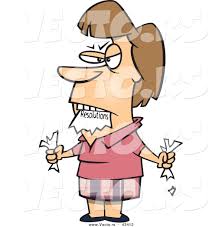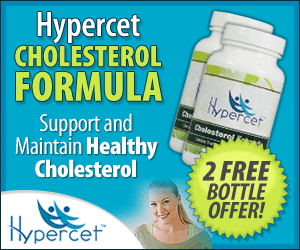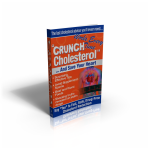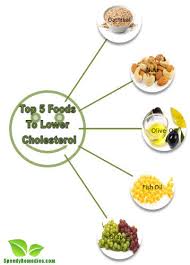just 6 months ago I was diagnosed with high cholesterol.
The consultant who diagnosed me decided that I should go on Statins.
I went ahead with getting the prescription but never took the tablets As I lecture on health sciences I have a habit of researching medical conditions and basically making my own decisions as to what I take and what I do not take. I made my own decision not to take Statins. I have been making modifications and changes to my diet and hence this article that will help those of you who also have the same problem.
Your cholesterol is too high. Well, perhaps not specifically you, but thousands of Britons and Americans have this news broken to them by doctors every day. …I am one of them and I make my own decisions on what I do about it.
We all have an amount of this special type of fat in our blood. It is essential for many bodily functions, but most of us – in fact 60 per cent – have too much.
So what exactly is cholesterol and why is it important that levels are kept low?
Cholesterol is a fatty substance produced by the liver and used to build cell walls, It creates a protective glove around nerves and makes other chemicals such as hormones. It is an essential element to our biological makeup
Cholesterol passes round our bodies by combining with protein to form a protective coating around tiny balls of fat absorbed from our diet – termed lipoproteins. The word lipo means fat
The purpose of this coating is to hold fat together, so we don’t have ‘oil slicks’ of fat in our bloodstream.
The two lipoproteins usually measured are low-density lipoprotein (LDL) and high-density lipoprotein (HDL).
LDL is like a bulldozer– big clumps of fat and protein that bounce along the arteries and can only be cleared from our system by the liver. As it travels, fat can break away and enter the artery walls, becoming embedded. This build-up where the artery wall gets thicker is called atherosclerosis and it causes the arteries to narrow so blood cannot get through. This results in blood clots that can trigger a heart attack or stroke.
HDL is known as ‘good cholesterol’. It is much smaller in size and hoovers up the fat deposits from the artery wall as it moves around the body. This is why it’s important to know how much LDL and HDL are in your blood, as the ratio between these two types of fat is what really matters when it comes to risk.
Now that we know what cholesterol is then what causes our levels to rise?
Cholesterol levels are controlled by our genes and also diet. In Western society, more people have high cholesterol than in countries with a low-fat diet, such as Japan. Eating foods high in saturated fat, such as butter, cream, processed meat such as sausages and fast foods, means that our cholesterol goes up. It is therefore important that we measure our cholesterol to keep track of what is happening with our arteries.
How do we measure our cholesterol?
Because of the job that each type of cholesterol does as described above, it is the ratio between the LDL and the HDL that is important. This is a measurement that can easily be done at your GP surgery. The result given to you is the volume of cholesterol in a measurement called millimoles per litre of blood – or mmol. The target is to have an LDL reading below 3mmol and a total cholesterol reading (which takes into account the HDL and LDL) of 5mmol.
People at high risk of heart disease – those with high blood pressure, who are overweight, older and may have family history of the disease – are told to get their total cholesterol lower, to 4mmol, with an LDL of 2mmol.
Scores for total cholesterol above 8mmol will mean the person is at medium to high risk of cardiovascular disease (CVD), depending on age and blood pressure. Even a reading of 5 or 6mmol may be too high if you have other risk factors, such as rheumatoid arthritis.
Now let me labor on this point here. Your reading of your cholesterol levels cannot be looked at in isolation. This is where many people get confused. It is the combination of cholesterol along with other risk factors that triggers alarm bells.
I had this very discussion with my GP when my levels were diagnosed as high. I have no other risk factors for Heart disease. I do not smoke, I exercise regularly, I am not overweight and I have if anything low blood pressure and not high. It was a result of our discussion that My GP agreed to let me go it alone and reassess a few months down the line. I will keep you up to date with my progress on my blog here
How often do I need to get a test?
After the age of 40, your GP should check your cholesterol every five years. If you have a family history of premature heart disease or raised cholesterol, you should tell your GP as soon as possible and would be eligible for tests before the age of 40.
Will I need to take statins?
If your total cholesterol is above 5mmol, most doctors will tell you to review your diet. If it is a lot higher, they may tell you to take statins because these drugs are likely to reduce cholesterol by 20 to 40 per cent – a massive drop. Doctors will prescribe statins to anyone with a 20 per cent chance of developing cardiovascular disease in the next decade. They will work out this risk based on a range of personal details. But they will still say you need to improve your diet as well. I have my own opinion on statins that I will publish in a separate article and let you know.
So how much can diet alone help?
Diet can reduce cholesterol levels by ten to 20 per cent, which significantly decreases heart-disease risk. Studies show that for the average person, the drop is 13 per cent. For some of us, this may be enough.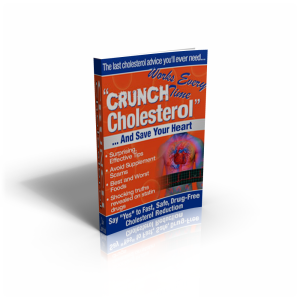
How long does it take to work?
To slash cholesterol by as close to 20 per cent as possible, you’ll need to adopt a healthy eating plan for at least three months. If you don’t see changes after three months, talk to your doctor. For some, a healthy diet does not have a great effect. Once your cholesterol has reduced, you’ll have to keep up the good work and stick to your new eating plan. It is an eating plan for life
Click here for Crunch Cholesterol
Just how do we alter our diet to adopt a health eating plan and reduce our cholesterol?
Much of the health advice on lowering your cholesterol is vague, and it leads to many misconceptions and myths.
So the million dollar question… can diet alone be used to bring down high cholesterol – or is it essential that we leave it all to statins?
The answer for very many people is yes, you CAN reduce your levels significantly through making changes in your diet. That is exactly what I intend to do with my own cholesterol levels.
Should we stop eating eggs? Aren’t they high in cholesterol? In fact, the answer is no. No food is prohibited, so you can still eat cheese, red meat and chocolate, within the limits of a low-fat diet.
Confusingly, there are hundreds of foods that carry labels claiming they can protect your heart or cut cholesterol. They do work, but you have to take them in a specific way to reap the benefits.
I have included in a seperate article here on a simple step-by-step guide – which includes building six food types into your diet – and you may be able to lower your reading by up to 20 per cent in three months.
